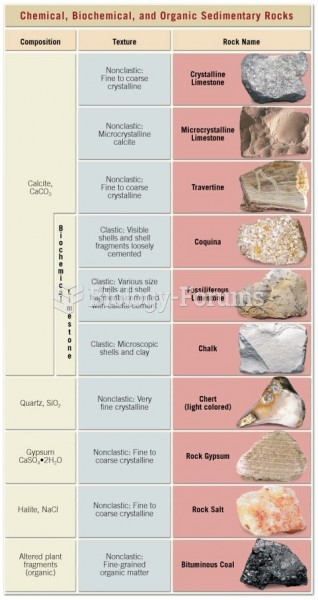|
|
|
The average person is easily confused by the terms pharmaceutics and pharmacology, thinking they are one and the same. Whereas pharmaceutics is the science of preparing and dispensing drugs (otherwise known as the science of pharmacy), pharmacology is the study of medications.
Everyone has one nostril that is larger than the other.
Hip fractures are the most serious consequences of osteoporosis. The incidence of hip fractures increases with each decade among patients in their 60s to patients in their 90s for both women and men of all populations. Men and women older than 80 years of age show the highest incidence of hip fractures.
Cytomegalovirus affects nearly the same amount of newborns every year as Down syndrome.
The strongest synthetic topical retinoid drug available, tazarotene, is used to treat sun-damaged skin, acne, and psoriasis.
 The greatest bone mass is found around age 30 for both men and women, with the later decline being f
The greatest bone mass is found around age 30 for both men and women, with the later decline being f
 An embedded particle of something was found on one of the gears, making this pump worthless except ...
An embedded particle of something was found on one of the gears, making this pump worthless except ...





